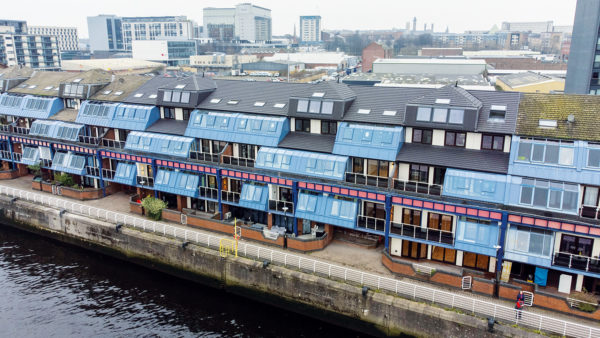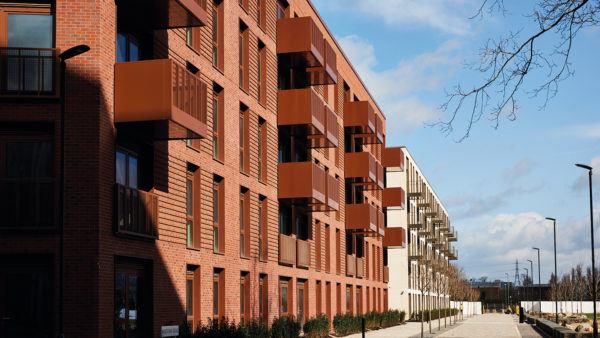CLC chair Andy Mitchell has helped lead construction through the pandemic, and despite the current lockdown, he sees light at the end of the tunnel. Will Mann catches up with him
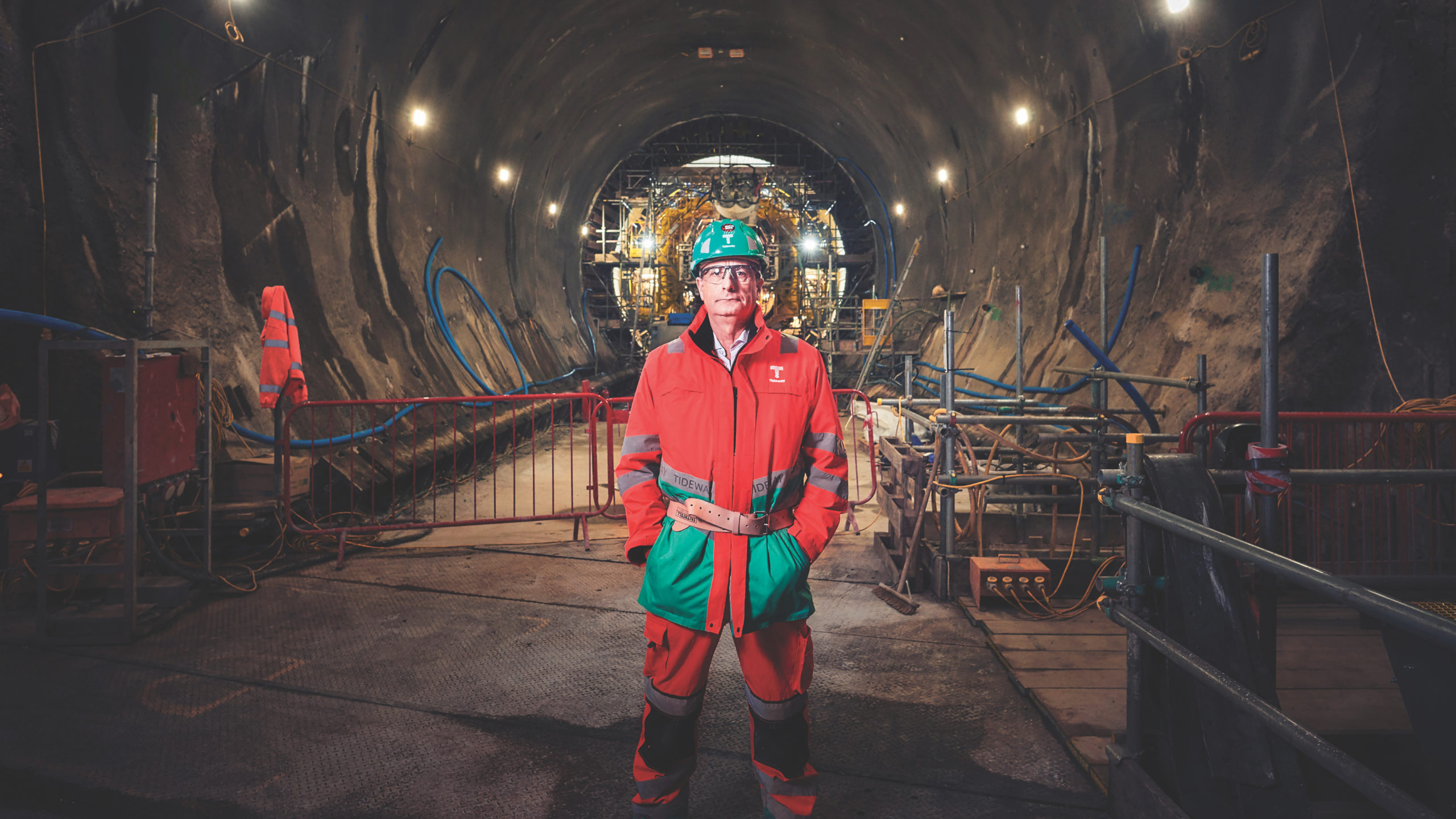
“Never has there been a time when this industry is so important to the country’s future.” If Andy Mitchell sounds Churchillian, it may be because the chair of the Construction Leadership Council (CLC) has just come from an event hosted by Boris Johnson, a known admirer of Britain’s wartime prime minister.
“I believe we have a government that recognises our sector can be a motor for the economy,” the Tideway CEO says. “We have shown we can continue operating safely even with the pandemic’s restrictions. And everyone in construction now realises that we can adapt and change quickly if we have to.
“So let’s bring that mentality to other key industry priorities. Let’s turbo-charge the change that’s necessary in building safety, net zero, digital adoption.
“There is a responsibility on all of us to step up.”
Since the UK’s first lockdown was announced nearly 10 months ago, Mitchell has gone into bat for the industry across a range of issues, gaining respect both within construction and government.
He set up the CLC’s coronavirus task force, which created the site operating procedures (SOPs), giving the industry a licence to continue working during those uncertain days last spring.
The recent surge in covid-19 cases, and the spread of its more virulent strain, was still a major worry as CM went to press, and the SOPs have been updated to reflect latest government guidance. Does Mitchell believe they will allow sites to stay open? “Fundamentally, yes – but we have to be absolutely sure we’re following
all guidance correctly,” he warns.
“We have to do a better job in presenting what this industry does for society. Younger generations are more altruistic. And we can present this industry as one where you can change the world. My hunch is that net zero will be a key part of that.”
The task force, which comprises all the major client, contractor and supply chain bodies, started with daily, one-hour sessions. Now they meet two days a week, Tuesdays and Thursdays, with 25 people on the call, says Mitchell.
“The good thing is everyone is engaged, from big civils contractors to builders’ merchants, and that has led to cross-fertilisation of ideas. Mark Enzer heads our new digital workstream and says progress is much quicker because we are sharing learning from a larger swathe of the industry. Without the pandemic, I don’t think we’d have got that.”
The CLC recently restructured, bringing on board new members, but Mitchell stresses the council won’t become “bureaucratic” as a result.
“The coronavirus task force is the same,” he says. “The senior advisory group will act like ‘non execs’; we are inviting critical challenge and getting a broader church of opinion. Making sure we don’t get lost in our own story.”
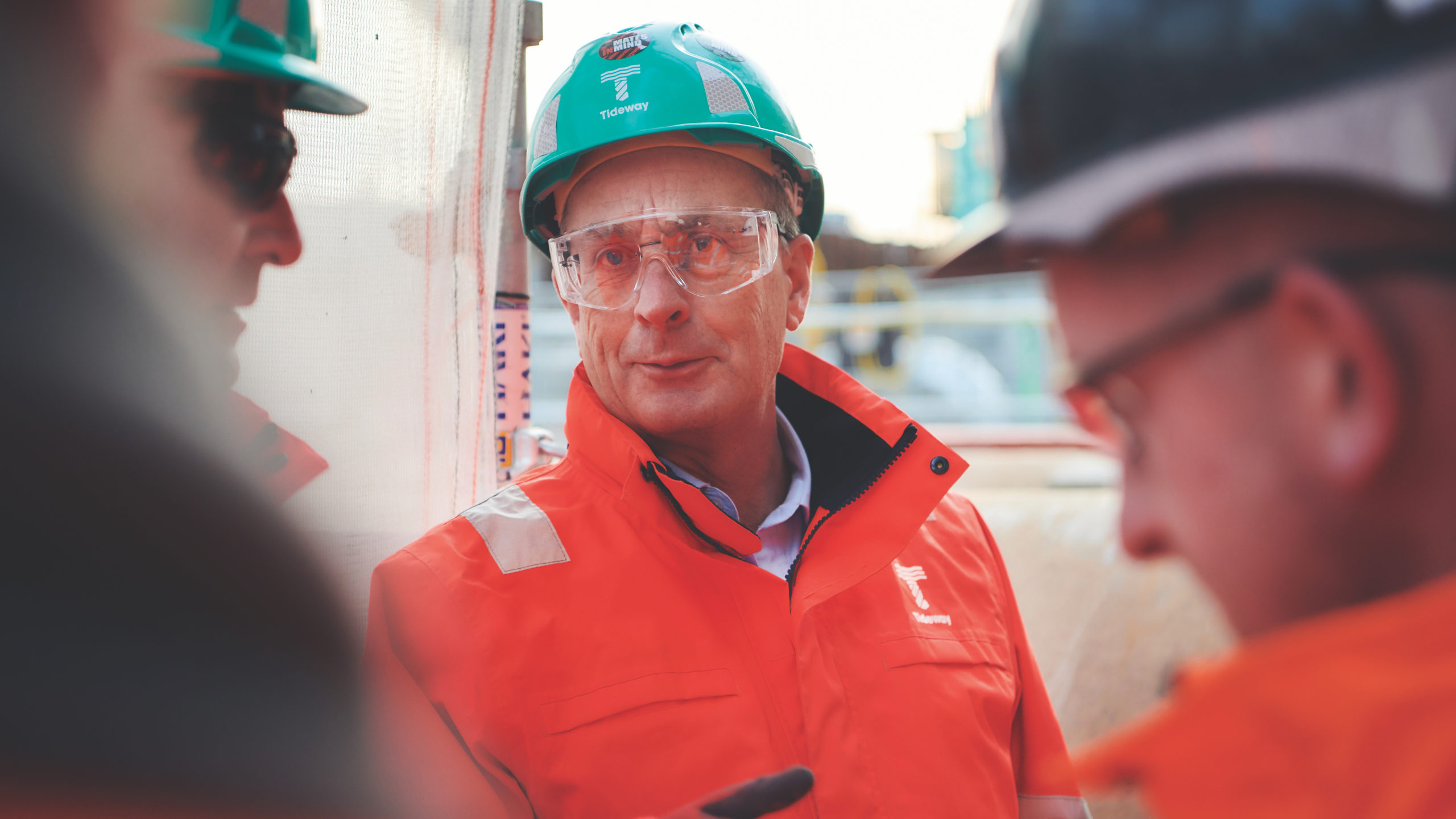
Professional awareness
“Personally, I would like to see tougher action on late payers. But I think there’s a way of doing that without legislation. We need more visibility of payment league tables, from public clients all the way down through the supply chain. No one wants to be at the bottom.”
The senior advisers include CIOB CEO Caroline Gumble, along with representatives from the ICE and now RIBA too.
Professional bodies have a “critical role”, says Mitchell.
“So many industry challenges are about professional awareness. Building safety is one example. Net zero is another, but we don’t have a clear vocabulary on that yet. The more ground we make with net zero innovation, the more we need the professional bodies to take a lead and say: ‘this is what we need to know’. Then the question is how we get the right standards of quality and competence rolled out.”
Mitchell feels net zero is a “big opportunity” for construction.
“We know the built environment generates 40% of our carbon emissions. So where can we make major changes, the way the motor industry is putting investment into electric cars, that deliver a real ‘bang for your buck’?
“Can we deliver zero carbon concrete or zero carbon steel? In steel, that would probably require electric arc furnaces, technology that would require a lot of investment.
“But there is a knowledge export opportunity here. The event the prime minister hosted yesterday was a 250-strong reception aimed at helping UK plc grow internationally. I think net zero is one area where the built environment can do that.”
Mitchell says he didn’t vote for Brexit but “we have to make the most of it” and believes there will be more trading opportunities from reduced tariffs and greater flexibility with international trade.
“We always thought there would be some short-term disruption and we’re seeing it with certain product groups,” he says. “There are unanswered questions around CE marks and product standards, but I think that will be short term. The skills situation is less of a concern, from what I’m hearing in the industry, than what we thought it would be a year ago.”
“We have to make the most of it. I didn’t vote for Brexit but there are opportunities. There are fewer tariffs and fewer trading restrictions so the UK’s competitiveness will increase. I believe there is an export opportunity here for construction.”
While covid-19 and Brexit kept him busiest last year, Mitchell also found time to address payment concerns, urging companies not to invoke penalty clauses in contracts, and warning such actions “will be remembered”. Last month he and the CLC repeated this message, encouraging “fair and responsible” resolution of coronavirus-related disputes.
Mitchell gave an enthusiastic endorsement to the government’s Construction Playbook, published in December. It aims to embed a new approach to procurement and delivery, which Mitchell hopes will lead to a “better and fairer industry” and he urges construction to help public clients understand its implications.
“Creating the playbook was a collaborative effort and that should apply to roll out – we know people learn from each other when you put them in the same room,” he says.
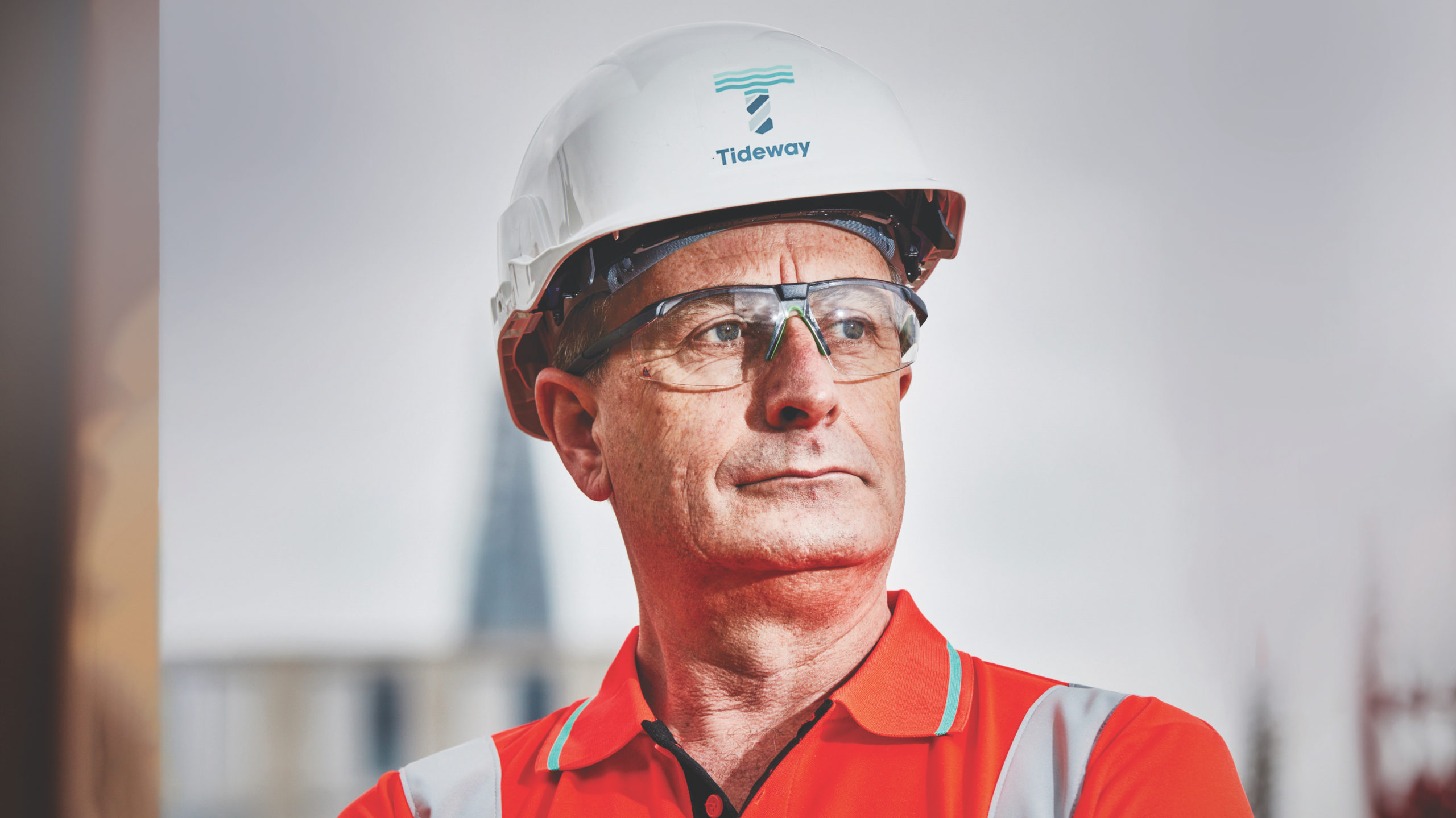
“We’ve had calls from Australia and Japan saying we’re using the CLC SOPs. For the biggest contractors, they employ enough people to think these issues through, but the guidance has been very helpful for smaller companies who didn’t
have those resources.”
It is sometimes easy to forget that Mitchell has a ‘day job’, as CEO of Tideway, which has faced the same challenges as the rest of construction over the past 10 months.
“There was confusion and fear back in March 2020, with most sites shut down, but some tunnelling work was in progress and had to continue or it would have been extraordinarily difficult to finish,” says Mitchell.
“We lost some time, but after six to eight weeks we were back working on all fronts, and by the summer the size of the workforce was at pre-lockdown levels.”
Discipline with covid-19
Tideway’s offices are closed now, though it opened them in the autumn – “we felt we had to offer that option to staff for mental health reasons,” Mitchell says – and rented new car parks, including the site of the Chelsea Flower Show, so workers could avoid using public transport.
Andy Mitchell CV
Since 2018: Co-chair, Construction Leadership Council
Since 2014: CEO, Tideway
2009-2014: Programme director, Crossrail
2004-2009: Programme director Thameslink, Network Rail
2001-2005: Project director, southern power supply upgrade, Network Rail
1998-2001: Programme and controls manager, West Rail, Hong Kong
1995-1998: Head of programme management, Airport Terminal Building, Hong Kong
1990-1995: Chief planning engineer, Kier Construction
1987-1990: Planning manager, Nuclear Electric
1985-1987: Project controls engineer, Snamprogetti
1981-1985: Field engineer, Chicago Bridge and Iron
Education
1989-1991: Henley Business School, MBA Project Management
1978-1981: Imperial College London, BSc (Eng) Civil Engineering
“What we’ve learnt on Tideway is about working discipline,” he says. “Construction is used to working safely, with a set of rules, and we have to treat the covid-19 restrictions the same way.
“One of our site managers told me he feels safer on site than on the high street. Stand too close to someone on site and they will complain; you won’t find that social distancing on the high street.”
The government, Mitchell feels, “values the crucial contribution” construction makes to the economy, as new business secretary Kwasi Kwarteng put it in an open letter to the industry in January.
“They have taken the view that rather than furlough construction workers not to do anything, they can operate safely and could create something of benefit for the country’s future,” Mitchell says.
“When the prime minister talked about ‘building back better’ and ‘building back greener’ last summer, I thought they were just soundbites. But he stressed it again when we met yesterday.”
Reflecting on the industry’s collaborative efforts during the pandemic, Mitchell again strikes a Churchillian tone: “Of course, it’s easy to work together in wartime, less so in peacetime. There’s a worry that we’ll see a falling off as and when we get through the pandemic. But that’s not happening at present.
“We have some tough months ahead, but we’ve got to believe by late spring to early summer things will be better."







